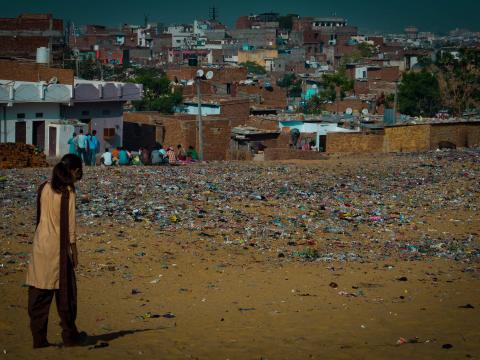Ending violence against women and girls is a priority

By Lara Villar, Senior Director of Operations, Ministry Impact & Engagement
Violence against women continues to be an obstacle to achieving equality, development, peace as well as to the fulfilment of women and girls’ human rights. All in all, the promise of the Sustainable Development Goals (SDGs) - to leave no one behind - cannot be fulfilled without putting an end to violence against women and girls.
Violence against women and girls is one of the most widespread, persistent and devastating human rights violations in our world today remains unreported mainly due to the impunity, silence, stigma and shame surrounding it. Some current figures are alarming:
- 1 in 3 women and girls experience physical or sexual violence in their lifetime
- Worldwide, almost 750 million women and girls alive today were married before their 18th birthday; while 200 million women and girls have undergone female genital mutilation
- 1 in 2 women killed worldwide were killed by their partners or family in 2017; while only 1 out of 20 men were killed under similar circumstances
- 71% of all human trafficking victims worldwide are women and girls, and 3 out of 4 of these women and girls are sexually exploited
- Violence against women is as serious a cause of death and incapacity among women of reproductive age as cancer, and a greater cause of ill-health than traffic accidents and malaria combined.
Let us be reminded of Gen 1:27-28 which tells us that men and women are created in the ‘image of God’ with specific responsibilities, indicating their equal statue as God's representative on earth. This reinforces the point that neither men nor women are superior or inferior to the other, but both have equal dignity and rights. Any form of violence on women is incompatible with the biblical account.
As we look at our future, World Vision prioritises gender as a critical area of programmatic focus, which will enable us to continue deepening our commitment to the most vulnerable, like Beauty, in Bangladesh.
Due to extreme poverty and an extended family with eight members, Beauty had to discontinue her education when she was in grade five. After that, she was obligated to choose the imprisonment of marriage at the age of 16. This was not the end of the tragedy, but just the beginning.
Her husband sold her to a brothel in Mumbai, India where she spent about six months. She was forced to take customers every night. Her only thoughts were of returning home.
With the help of one benevolent client, she managed to call her family, and soon she was rescued from the brothel and sent home.
The painful journey turned even more dreadful when she realized that she was expecting a baby. She had no prospects for the future, and she trembled reflecting on how she would nurture a child alone.
At that time, the Child Safety Net Project (CSNP), a World Vision Bangladesh programme, supported her to open a grocery shop. In no time, Beauty started to make a fair income, and she expanded her shop with the profits she's earned.
Beauty's daughter is now 2-years-old, but Beauty is not keen to marry again as she cannot trust anyone.
When we met her, she said, "I have gone through the toughest time of my life. Sometimes I cannot express my feelings, but when I see my daughter playing in my yard, I forget the suffering that I have gone through. I will make sure that my daughter will not suffer like me and to do this, I will make her educated enough to choose the right person."
She utters with tears in her eyes, "World Vision had supported me when I was in need. Now I am earning and not a burden to anyone. My community has also accepted me in a good way because of the advocacy of World Vision. I want World Vision to keep working for girls like me so that they can have a reason to live.
*Beauty is not her real name
Sources: https://www.un.org
https://www.unwomen.org